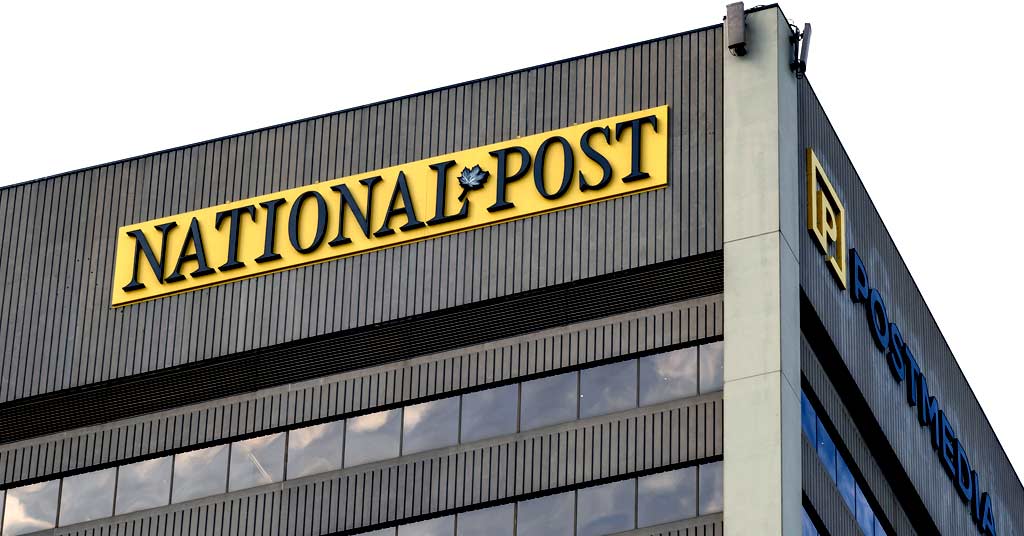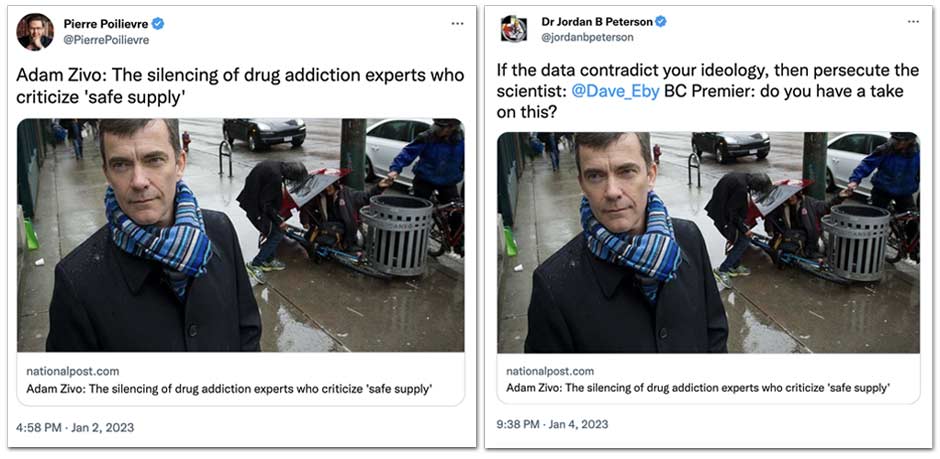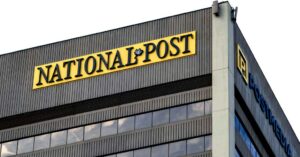
The National Post Claims an Academic Was ‘Censored’ For Criticizing BC’s ‘Safe Supply’ Policy. That’s Not Quite Accurate.
Drug policy advocates say safe supply is being used as a ‘scapegoat’ by right-wing political figures
One of Canada’s biggest newspapers claims BC’s government is “silencing” experts who criticize safe supply – but drug policy experts say the article gives a distorted picture of what’s really going on.
Last week, the National Post published an article claiming the BC government was “censoring” an academic after terminating a data sharing relationship and asking him to “delete” information contained in a database.
In the article, Simon Fraser University health professor Julian Somers claims his research is being targeted because it goes against BC’s approach to homelessness and addiction, which he claims fosters “dependency through easy access to free drugs.”
“This government is actively hostile to the existence of the data, so I’ve completely given up. The work I was doing is no longer viable,” Somers told the National Post.
The National Post article was promoted by Conservative leader Pierre Poilievre, the Conservative Party’s communications director, Conservative MPs, BC Liberal MLAs and other right-wing figures.

Pierre Poilievre, Jordan Peterson (Twitter)
However, the BC Ministry of Public Safety and Solicitor General has a different explanation – they say they terminated the data sharing relationship with Somers in 2021 so that the government could streamline data collection.
According to the provincial government, the request to terminate his existing data coincided with the expiration of the existing agreement with Somers.
“In response to Dr. Somers’ concerns, in January 2022, Dr. Somers was informed that he could have continued access to the Inter-Ministry Evaluation Database until March 31, 2023, to ensure any existing projects could conclude and to allow time to replicate select published findings within the new Data Innovation Program,” a spokesperson for the Ministry said in a statement to PressProgress.
“Dr. Somers has been encouraged to access the Data Innovation Program and raise any concerns with the available data. To date, Dr. Somers has not accessed nor provided any feedback on the Data Innovation Program available to him.”
In the National Post, Somers points to the fact he was told to “delete” his data as a sign he is being silenced. However, the Ministry notes this was done in accordance with requirements under the Freedom of Information and Protection of Privacy Act and points out he still has access to the data.
“We look forward to collaborating with Dr. Somers on projects of mutual interest within the Data Innovation Program, and more broadly, to continue discussions on how to generate evidence to best support the populations we serve.”
In addition, despite Somers’ claims of being “completely frozen out,” his working relationship with the BC government has not ended, and the BC Ministry of Health recently commissioned him to do a rapid review of drug checking.
However, the National Post article paints a starkly different narrative.
The cover image shows Somers posing on what it calls the “notorious” Downtown Eastside, in front of individuals slumped over on the ground.
The imagery was similar to Pierre Poilievre’s video mischaracterizing safe supply which also used the Downtown Eastside as a backdrop.
Somers was also featured in a documentary promoted by a right-wing group shaming homelessness and those who use drugs, even participating in a panel discussion moderated by far-right activist Angelo Isidorou.
Why Pierre Poilievre’s video attacking safe supply is misleading and dangerous.
“The three things he wanted to do are really like Richard Nixon’s war on drugs.” https://t.co/6qXyiNdkjE #cdnpoli #bcpoli
— PressProgress (@pressprogress) November 25, 2022
The National Post references research done by Somers on housing and homelessness, and states that the BC’s current approach is inadequate. However, the research referenced by the National Post was used by Somers last year to oppose a proposed social housing project in Kitsilano.
Somers was an outspoken advocate against the project, stating that “congregating people with mental health and addiction issues in a single building does not work.”
This prompted one of the study’s co-authors to issue a public statement, disputing Somers’ representation of the study’s findings:
#New: Dr. Anita Palepu, co-author of the ‘Vancouver at Home’ study disputes findings cited by Dr. Julian Somers surrounding the effectiveness of congregate housing models.
Says Dr. Palepu, ” In fact there were more favourable secondary outcomes among those in congregate housing” pic.twitter.com/kNVnwZNH1N— Kitsilano for Inclusivity (@KitsInclusivity) July 19, 2022
In a letter, professor Anita Palepu, the head of UBC’s Department of Medicine and a co-author of the report, stated she was unaware of evidence that backed Somers’ claims.
“I disagree with Dr. Somers presenting the Vancouver At Home study to social and/or supportive housing,” Palepu wrote. “I am not aware of the evidence he is referring to.”
The National Post further states Somers’ research shows “it’s better to empower people to get back on their feet, rather than foster dependency through easy access to free drugs.”
But drug policy advocates say this representation of safe supply is extremely inaccurate.
Petra Schulz, a drug policy advocate from a group called Moms Stop the Harm, says it has become popular to use “safe supply as a scapegoat” when it comes to evaluating drug policy in both BC and Alberta.
“What (Somers) often does is he equates safe supply as a reason for people being unhoused,” Schulz told PressProgress.
“BC has had a crisis of homelessness and substance use for much longer than we’ve had safe supply. And safe supply is available to so few people in BC, so it is difficult to measure the effectiveness.”
Just last year, Dr. Somers also wrote a controversial report on safe supply commissioned by Alberta MLAs. More than 50 experts signed an open letter condemning the report and its methodologies, which they described as “critically low quality.”
“Among the primary issues with the review is a flawed search strategy that resulted in a number of studies unrelated to safer supply being included, and a number of important and highly relevant studies being excluded,” the letter states.
In the National Post article, Somers alleges he has “been subject to an intimidation campaign by safe supply advocates” and the article quotes other academics who have criticized safe supply as “irresponsible.”
But Tyson Singh Kelsall, an outreach worker on the Downtown Eastside and a PhD student in the faculty of Health Sciences at SFU, says many academics are “using their credentials to validate ideological attacks on harm reduction.”
“This right-wing generation of the safe supply bogeyman is fake,” Kelsall told PressProgress.
“What’s being missed here is that neither side, not Julian’s presence in the media, nor the side that he’s criticizing, is actually doing anything for a regulated and safe supply of drugs in the Downtown Eastside,” Kelsall said.
Kelsall added that when doing outreach on the Downtown Eastside, he is constantly confronted with the reality of the toxic drug supply at every corner.
“It’s kind of appalling that someone would be using their credentials to withhold undercutting the poisonous and toxic supply of drugs, while people in positions like mine and community members in the Downtown Eastside are losing friends, family, relations, community members every single day.”
“Collective levels of academia and collective levels of government have done almost nothing to address the poisonous supply of drugs. We will continue to lose six people a day until demands from the community are met, that we undercut the poisonous supply and replace it with a regulated and safe one.”
Our journalism is powered by readers like you.
We’re an award-winning non-profit news organization that covers topics like social and economic inequality, big business and labour, and right-wing extremism.
Help us build so we can bring to light stories that don’t get the attention they deserve from Canada’s big corporate media outlets.
Donate



